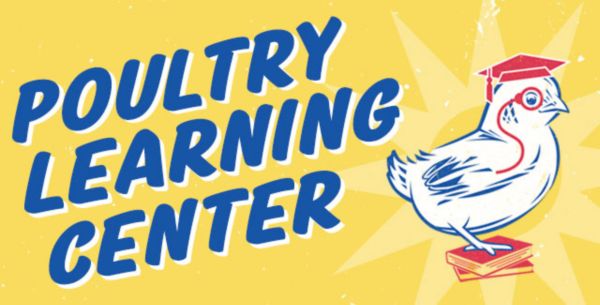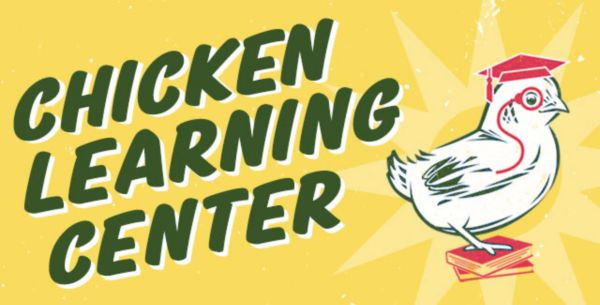Guide to Raising Game Birds
Raising game birds is often done for their sought-after gourmet meat and eggs, while some are more interested in exhibition or personal enjoyment. Many game birds are also raised for release in preserves or for hunting purposes. This guide will help you learn the basics for how to raise game birds such as pheasants, turkeys, guineas, and quails, as well as providing tips for feeding, housing and first aid. No matter your purpose for raising pheasants and other game birds, we’ll help you start your fowl flock.
Raising Game Birds
As with any poultry, begin your game bird journey with research and preparation. Some areas do not consider game birds livestock, so if backyard chickens aren’t allowed in your area game birds may be ok with a permit or license. Be sure to check with your state department to learn about game farm zoning, permits and regulations where you live.. Keep in mind that game birds require a substantial amount of time and specialized care to raise successfully.
Buying game birds and preparing supplies: Similar to chickens and ducks it’s a good idea to purchase chicks, poults or keets in the spring/early summer to help keep them warm during the brooding process. You’ll want to have your brooding supplies (see below), your items and brooding area cleaned, disinfected and set up ahead of time, and an outdoor pen and shelter ready for once your birds are grown.
Game bird considerations: Game birds tend to spook or startle easily so care must be taken to give them separate, protected space to roost and relax. They can also exhibit more cannibalistic behavior and pecking than other poultry so they will need additional space and a close eye on their habits. Most domestic, adult turkeys get too large to fly, but all other game birds will fly. If you’re not planning on releasing your birds to a preserve or for hunting, primary flight wings will need to be clipped to keep them close to home. Because game birds can have weaker feet and joints, provide good traction in their brooding boxes and pens/shelters to help prevent injury.
Choosing a type of game bird
First decide what type of game bird you would like to raise and for what purpose. For example, turkeys and guineas may be more ideal for insect control, meat, and egg production, while quails and pheasants may be ideal if you are interested in raising birds to show or for hunting purposes (although both can also produce meat and eggs). You’ll also want to look at market opportunities for game birds in your area, as well as availability of breeders, supplies and feed and veterinary care. Lastly, consider the amount of space you have for game bird housing since they will require more than chickens.
Choosing a breed
There are not quite as many breeds of game birds as chickens and ducks, but there is still a wide variety to choose from. Some of the popular game bird breeds for these common types include:
Turkeys: Standard Bronze varieties, Narragansett, Bourbon Red, Blue Slate
Pheasant: Ringneck, Chukar, Golden, Lady Amherst’s Pheasant, Silver
Quail: Benson/Douglas, Blue, Bobwhite, Gambel’s Quail, Mountain
Guinea: Pearl, White, Lavender, Crested, Vulturine
Brooding Your Birds
Artificial brooding is the period in your young birds’ lives when they require watchful care and a heated environment where they can grow and thrive, just as they would if natural brooding with a hen. Game birds are especially delicate so the more you prepare and tend to your young fowl the fewer issues you will have. Once your hatchlings grow to about 6-8 weeks of age or are fully feathered, they can regulate their own body temperatures. Just like chickens and ducks, brooding game birds requires a warm, clean, dry environment with access to food and water.
Game bird brooding tips
Brooding Supplies: You’ll need a brooding box, brooder guard or draft shield, cover or top netting, thermometer, heat lamp and bulb or heat/brooder plate, soft, low-dust litter like pine shavings (for turkeys) and chopped straw or hay (for other game birds), a feeder and waterer, turkey/game bird starter feed, grit, and brooder paper or burlap to help birds keep their footing.
Brooding Set-up & Process: The brooder, brooding plate or heat lamp should be turned on 24-48 hours before the chicks, poults or keets arrive to warm up the space. The temp should start at 90-95ºF at bird level for the first week and then decrease by 5ºF each week until outdoor temperature is reached. Using a brooder guard will also help keep birds near the heat source and out of crowded corners. Keep in a non-drafty area and clean out soiled litter, waterer, and feeder daily. At about 3-4 weeks depending on the outdoor temperature, you can gradually introduce your birds to supervised outdoor time in their eventual pen or shelter.
Game Bird Brooding Tips: Game birds such as turkeys, guineas, pheasants, and quails, will need more space during brooding to help prevent pecking and pulling, as game birds can be cannibalistic. Keep a close eye out for this behavior! Guineas, pheasants, and quails should also be started with feed on flats for easier access and chicks should be given shallow water bowls before switching to a waterer. Many of these fowl are flyers, so you will need lid or net. They may also need to be transferred to a coop or shelter sooner. If planning to release your birds, efforts must be made not to tame them and to acclimate them to the type of habitat they will be released into.
Housing Game Birds
Housing needs for raising game birds varies based on type and flock size, but all kinds of fowls need a safe, clean, well-ventilated space to sleep at night, even if they spend most of their days in an outdoor pen, run, aviary or yard. Coops and pens can be created using existing structures like sheds and barns or they can be pre-built, or custom made. They do need to be reinforced against predators and the elements. Most will also need an attached pen, run, aviary or fenced area (for turkeys) where they can have outside time while still being protected.
- Turkeys: Turkeys will need a roosting bar to perch, soft bedding, and floors/surfaces with good traction. They should always be housed and raised separately from chickens to prevent the spread of Blackhead disease. Turkeys need space to explore, forage, and scratch. If you fence an area, be sure that it is both buried and higher than 5 ft. to keep predators out and turkeys in. A well-maintained turkey yard with native grasses, plants, trees, and bushes with a mix of logs and stumps, will create a more natural environment for your turkeys to thrive.
- Small game birds: Quail, pheasant, and guinea fowl are very sensitive to moisture and temperature changes, so extra care will need to be taken to keep them dry and warm. Pens/aviaries for smaller game birds need to be fully enclosed to keep them from escaping and keep wild birds and predators out. Game birds tend to startle easily, so separating coops and pens from loud areas and including a barrier around the pen to distance other livestock and predators is recommended. Including landscaping or vegetation common to a wild habitat in a pen is a good way to give game birds places to roost, nest, and forage. Shrubs and brambles will work for younger poults and keets, while trees will work for roosting adult birds.
Game bird housing tips
Bedding, nesting and bathing: Low-dust bedding should be used. Pine shavings are fine for turkeys, while chopped straw and hay is preferred for game birds because they tend to eat shavings and sawdust. Nesting boxes with straw bedding should be provided and can be individual or communal (for turkeys, in particular). Birds take dust baths which helps prevent external parasites and clean away dead skin. Provide dust boxes large enough for your birds to open their wings. This will keep them from excessive dirt scratching that can make maintaining their outdoor habitat challenging.
Space: Do not mix age groups, until they are considered fully grown. Game birds need more space than other poultry due to pecking, pulling and cannibalistic behavior when they are too crowded.
- Turkeys: The more space you can give turkeys the happier they will be, but they at least require 6-10 feet in the coop and 10-15 square feet in an outdoor pen or run. If you are breeding or brooding turkey toms and hens will need separate areas.
- Small game birds: Smaller game birds such as pheasants, guineas and quails require around 3-4 feet per bird in the coop and 10-20 feet in their pen or run to give them enough space to forage and roam without getting bored.
Feeding Game Birds
The right mix of feed, treats, and supplements will help keep your flock healthy and productive. As with chickens and ducks, you will also need to provide clean, fresh water always. Get all the basics for feeding your turkeys, pheasants, guinea fowl and quail.
- Feeding Game Birds: Turkeys grow quickly and eat quite a bit, especially large non-heritage breeds. Pheasant, quail, guinea, and turkey diets are high in protein, starting at 25-30% for poults, chicks and keets and reducing to about 18-20% for adult layer or grower birds. If you are not raising birds primarily for meat or egg production, they can be fed a lower protein maintenance feed of 11-15%.
- Supplements: Like ducks, turkey, quail, guinea, and pheasant hens may need additional calcium when laying eggs and access to grit for digestion, if they can’t forage. Like chickens, game birds are susceptible to coccidiosis (intestinal tract disease), so medicated food for poults and chicks is often needed for healthy flocks.
- Cleaning and feed safety: Feed and water containers should be cleaned daily. If using metal feeders or waterers be sure to use cleaners that will not corrode the metal and cause it to contaminate the water. Metal waterers and feeders should also be replaced if rusted. Using feeders that can be hung or otherwise kept of the ground will help keep birds from kicking bedding or excrement into them or necessitate more frequent cleaning. At night, feed can be removed/put away to prevent pests. All food should ideally be stored in tightly sealed bins to keep rodents from getting into it.
Tips on game bird feed and treats
Feed types: You likely won’t find separate feed for different birds, so anything labeled game bird feed or turkey feed should meet their needs. Guinea keets, pheasant and quail chicks should be fed on flats for easier access to food for the first couple of weeks. You’ll begin with a starter feed, then switch to a grower, layer or maintenance feed based on the purpose or needs or your birds. Feed typically comes in pellet, crumble, or mash form. If you’re having trouble with fast-eating turkeys inhaling their food, pellets or soaking food in water may help. Some recommend feeding mash first, then crumble, then pellet.
Treats for turkeys: Leafy greens can be fed more often while starchy vegetables should be limited. Kale, lettuces (except for iceberg), cabbage, cucumber, cooked sweet potato, berries and apple are all great options.
Treats for smaller game birds: Fresh greens are also healthy for smaller game birds. Chopped carrots are another good option and quail and pheasants like apples. Mealworms from a clean, trusted source can also be provided. If not releasing, a small amount of grain can be fed by hand daily. This will help you observe your birds for bad habits, disease or injury and will also make them tamer for catching and handling.
Game Bird First Aid
Game birds are affected by many of the same diseases and ailments of other poultry, though there are a few issues specific to them. Also, like chickens and ducks, it helps to focus on prevention and preparedness to keep them healthy and to spot issues while you can still control them. And don’t do it alone—make sure you have an expert identified to lean on when you need additional help.
Prevent: Also known as biosecurity. Keeping the causes of disease away from birds by putting preventative measures in place will save you a lot of time and heartache. Ensuring everyone who encounters poultry washes their hands before and after, keeping equipment, feeders, coops and bedding dry, clean, and disinfected, keeping the ground dry and securing poultry housing and pens against pests and predators are all helpful actions. You can also keep your flock healthy by feeding a well-balanced, appropriate diet with sufficient vitamins and minerals, providing ample clean water, and prioritizing health over production. Lastly, keep an eye out for destructive behaviors before they get out of hand.
Prepare: The best ways to prepare are to have an isolation area where ill or injured fowl can be kept separate and safe, a poultry first aid kit that is stocked with essentials, and a veterinarian or avian specialist lined up when you need additional help. In general, raising game birds requires you to look out for subtle signs that your birds are unwell and to identify common warning signs of disease, pests, and other issues. Make sure to report sick birds to the USDA and have your state’s poultry pathology lab or extension service contact information on hand. Finally, be prepared for the time it will take to care for, treat and reintroduce sick or injured birds to the flock.
Learn more about Poultry First Aid.
Common game bird issues
The biggest behavioral issues for game birds are pecking, pulling, cannibalism and egg-eating. It can be hard to break them of these bad habits once they start so close observation and prevention are important. Plenty of space, especially at feeders and waterers, good quality, nutritious feed, other objects to peck at and a well-ventilated coop or brooder with subdued light and areas to distance will all help prevent aggressive behavior. Using stone decoy eggs or otherwise making eggs unappealing to birds will help with egg eating.
Common game bird diseases
Good biosecurity is the best way to prevent diseases and keep your birds healthy. Diseases common to other poultry are also common in game birds, such as pullorum, paratyphoid, streptococcus, aspergillosis, coccidiosis, and fowl pox. Ulcerative enteritis is the most common disease of quail and can be prevented by keeping sanitary conditions and controlled with zinc bacitracin in feed. Gapeworms can affect young turkeys and pheasants, causing them to gasp for air. Keeping the ground dry and tilled will help limit access to gapeworm larvae and Fenbendazole and extra vitamin A can help in treatment.


